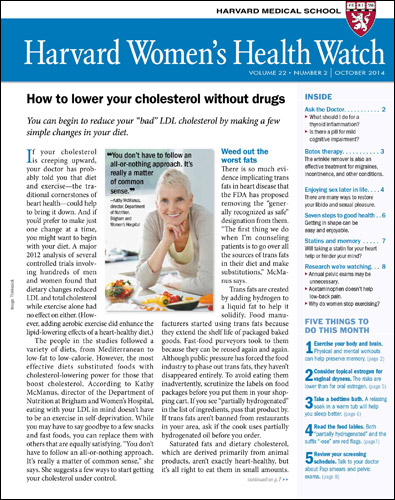Harvard Health Blog
Doctors debate use of email for communicating with their patients

Every now and then, I email one of my doctors or they email me. The communications aren’t anything fancy, mind you—requests for prescription refills, test results, and the like. Apparently, these electronic exchanges put me squarely in the middle of a hot debate among doctors.
The Wall Street Journal offered a peek into the controversy by asking two doctors to write about why they do, and don’t, use email to communicate with their patients.
Writing in favor of email was Dr. Joseph C. Kvedar, a dermatologist and founder of the Center for Connected Health, a Harvard-affiliated organization that aims to move health care from the hospital and doctor’s office into the day-to-day lives of people who need help. Taking the opposite side was Dr. Sam Bierstock, an ophthalmologist who is now the president of Champions in Healthcare, an information technology consulting group.
Kvedar believes that using email improves efficiency and avoids the frustration of phone tag. He also says that
making myself available via email gives my patients a sense of direct access to me. It sends a message that I care and that I’m available to answer questions in a timely manner. It builds a bond between us that has tangible benefits for my patients’ health.
Bierstock agrees that email may be useful for basic communication such as scheduling appointments or prescription refills. But he worries about the possible liability and legal ramifications. He also says that email is
no way to practice medicine. Providing care includes an ability to interpret body language, facial expressions and other silent forms of communication that allow doctors to assess patient reactions to information about their health (apprehension, fear, anxiety) and the accuracy of their responses to questions. Online communications eliminate the ability to interpret these important signals.
Both doctors make good points (you can read the entire article on the WSJ site), making me think that, at least for a while, the use of email will probably come down to personal preference, for doctors and the rest of us.
What’s your preference? Do you email your doctor, or wish you could? What do you think is appropriate to discuss with him or her by email, and what isn’t?
About the Author

Patrick J. Skerrett, Former Executive Editor, Harvard Health Publishing
Disclaimer:
As a service to our readers, Harvard Health Publishing provides access to our library of archived content. Please note the date of last review or update on all articles.
No content on this site, regardless of date, should ever be used as a substitute for direct medical advice from your doctor or other qualified clinician.













